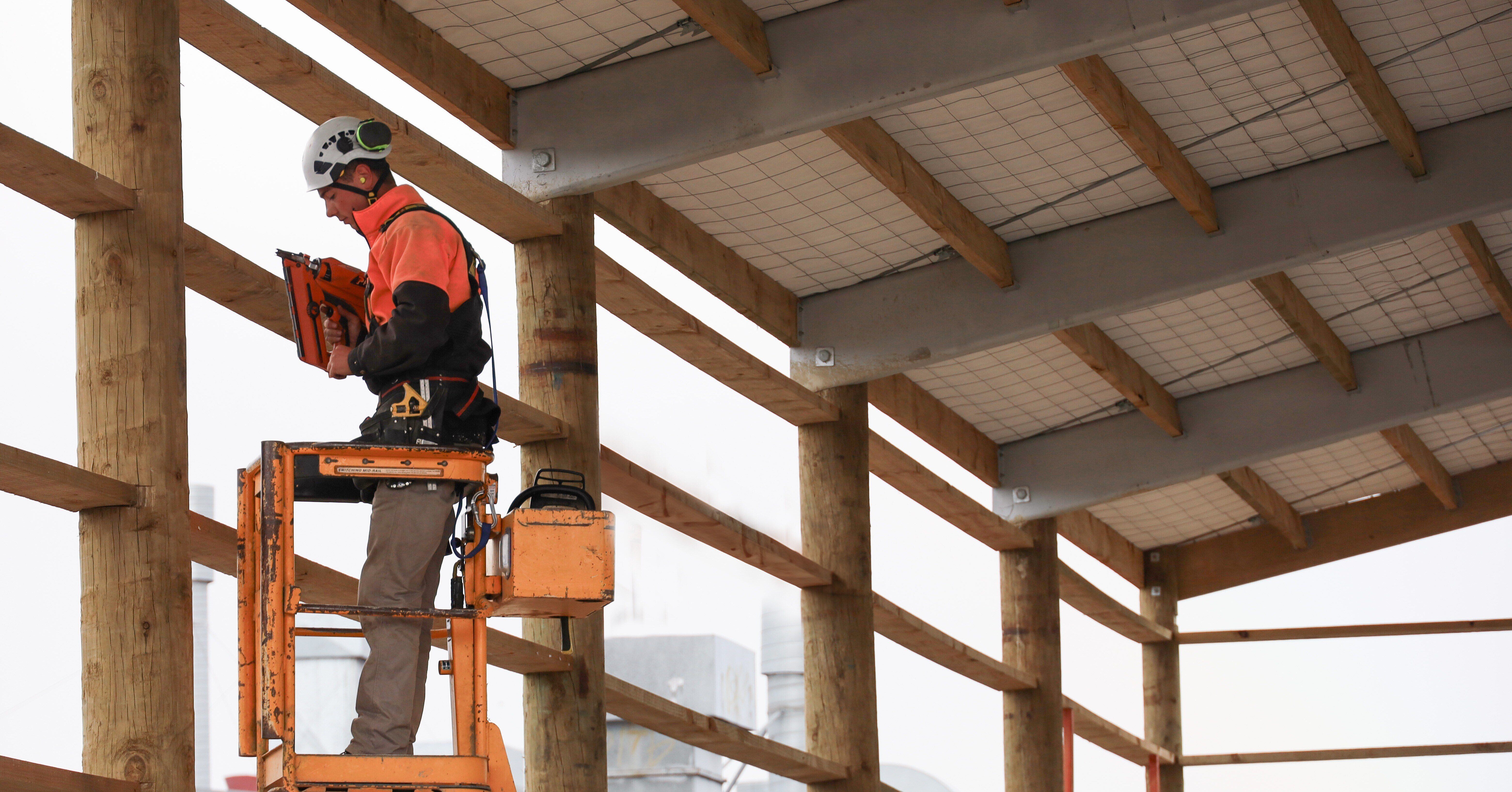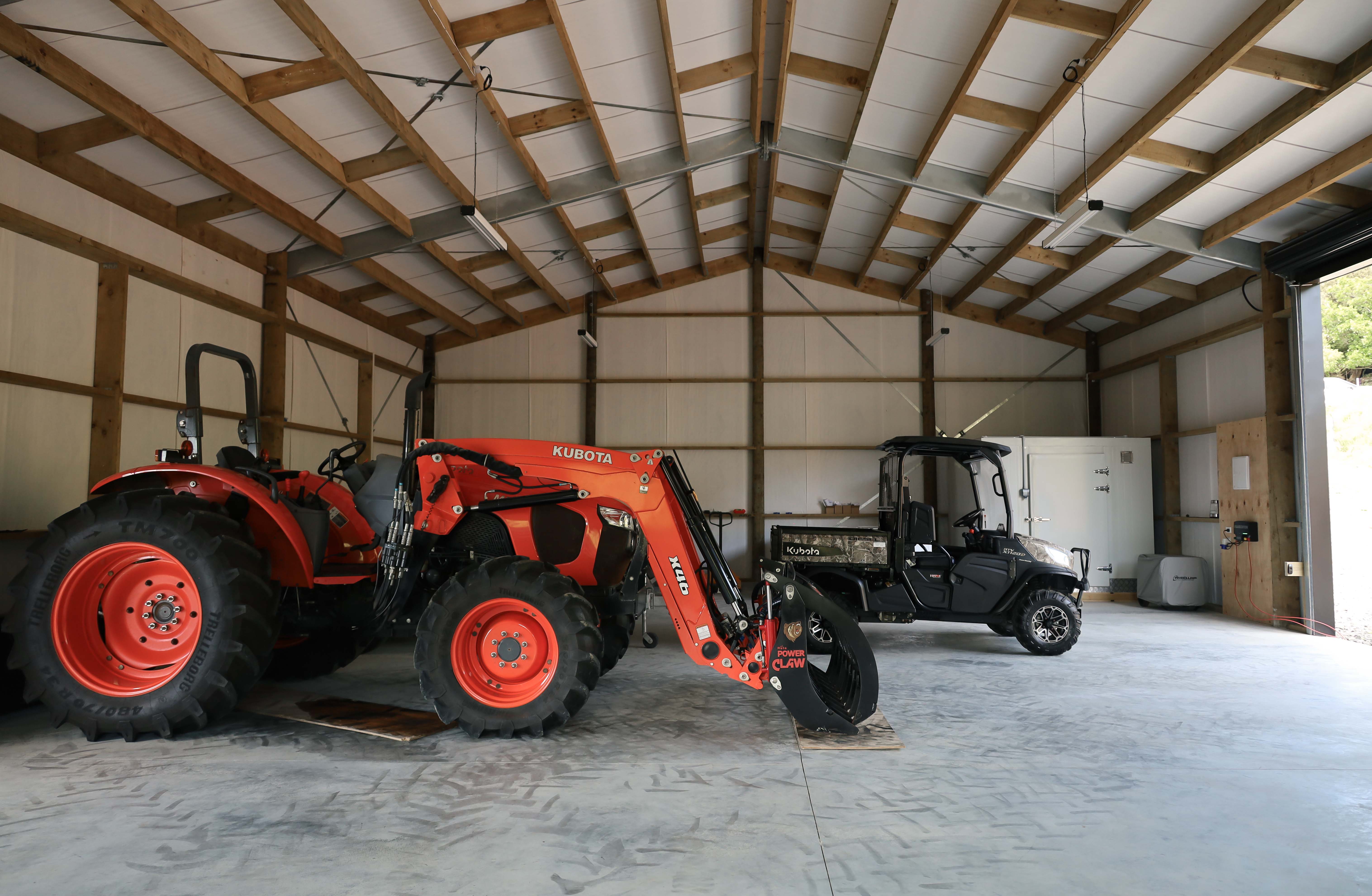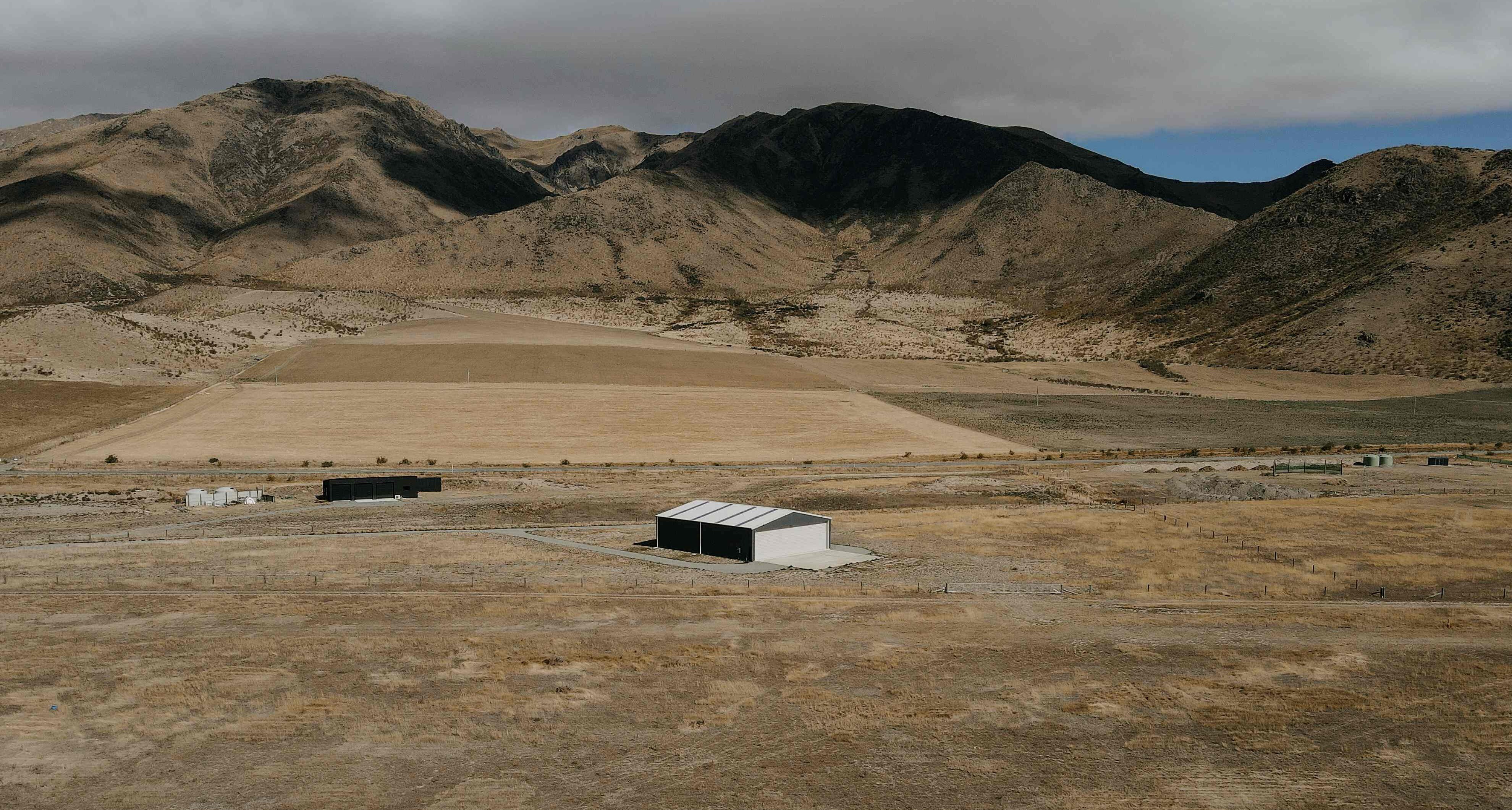
If you need a new shed, purchasing a kitset and building it yourself can provide substantial cost savings.
In this article, we outline the key steps you need to follow to erect a kitset shed. We cover site preparation, shed foundations, framing, roofing, cladding, and more.
9 steps to build a kitset shed
Below, we explain the 9 steps to build your Alpine kitset shed. To see an example of our sheds being built, watch this video.
1. Site preparation
Before your kitset can be erected, you will need to prepare the building site. The appropriate processes will depend on the site conditions. For a sloping site, more site work may be required, such as excavation and retaining walls.
If your site is sandy, peaty, or soft with swamp-like conditions, you will also need a geo-tech report. An engineer or surveyor will need to test the site to reveal exactly how hard the ground is and how much weight it can support. This will determine which site works are required to meet council regulations.
It’s also important to make provisions for your shed drainage and power requirements. Typically, drainage consists of digging a soak pit and channelling it towards a natural water course or existing stormwater infrastructure. If you need power in your shed, you can either run it underground or through the wall cladding and into the shed.
2. Shed floor
Sheds with a concrete floor
If your shed will have a concrete floor, the building platform must be level and compacted. First, scrape the loose topsoil away to expose the hard ground underneath. Then, spread 200mm to 400mm of AP20 (or similar) gravel evenly and compact it to form a base. We recommend making the gravel area at least 700mm wider than the shed pad.
It is easier to pour the floor after the poles have been concreted in place and this will provide the tidiest finish. Alternatively, the floor can be poured after the shed is completed but it will be a little more difficult.
Sheds without a concrete floor
If your shed does not have a concrete floor, the site preparation is easier. While you still need to level the site, it doesn’t need to be as precise. Simply scrape the topsoil away and evenly spread 200mm to 400mm of gravel to stop the site from becoming too muddy. The gravel should be compacted to provide a more stable work platform for the builders.
3. Concrete footings
Once your consent has been issued and the shed materials have arrived, you can start building the shed. You will need to mark out the shed, auger the holes to the specified depths as shown on the plans, stand the timber poles and concrete them in place. Please note that the concrete is not included in the kitset delivery.
4. Box section rafters
When the concrete around the poles has hardened, lift the box section rafters into place, you will need a hiab truck or a similar implement that can lift the heavy-duty structural steel rafters to the required height. Our steel rafter systems come pre-welded so all it takes is one bolt to attach it to the timber poles.
5. Install the purlins
Our rafters come with revolutionary J-shaped brackets pre-welded onto the rafter to provide simple and strong support for the purlins to sit in. This dramatically speeds up the installation time as it means all the purlin cleats are conveniently attached. This would otherwise mean that multiple joist hangers would need to be measured and then screwed in place, which is very time-consuming.
6. Install the shed roof
When the rafters and purlins are in place and the purlins have been straightened, it’s time to lay the roofing on your new shed structure. Everything will be included in the kitset, from the fixings to the building paper (if required), to the cladding and flashings.
7. Install the shed walls
If your shed has walls, you will need to install horizontal girts between the structural posts. This will provide lateral support to secure the shed cladding. Common cladding options include timber, COLORSTEEL®, and Zinc.
8. Installing shed doors and additional features
If your shed has doors or any extra features, your shed plans will indicate how to frame out the door.
We recommend you get a certified door installer to install any roller doors, if you are not certified, this can void the warranty on the roller doors. With personal access (PA) doors, you may need to cut the cladding to fit the door dimensions. For larger doors, such as roller doors, the framing will account for the door specifications.
9. Code of Compliance
When everything is completed, all you need to do is submit the final “code of compliance” paperwork to the council. There will be a final inspection by a council building inspector to ensure the shed is built to the correct specifications and meets the NZ building code. It is important to ensure the shed is fully completed before the inspection.
Alpine Systems Kitsets Sheds NZ
At Alpine, we work hard to provide kitset sheds that are fast and easy to build. You don’t even have to be a qualified builder because everything you need is provided, including instructions, fixings, and materials. If you have any questions during this process, our experienced team is only a phone call away. - All materials and fixtures provided, excluding concrete and related materials.
- Full project management.
- Construction time can take as little as one week, depending on the shed size.
- Installation service.
- A nationwide network of trusted builders.
With an Alpine kitset shed, you’ll be surprised how quickly it transforms from a few materials into a complete, robust shed. Download a free copy of our kitset shed brochure to explore the range and find the ideal shed solution for your needs.









